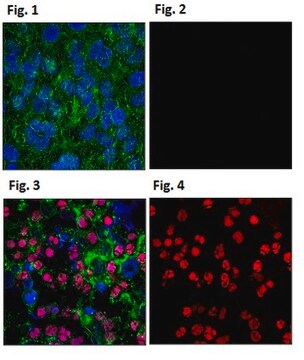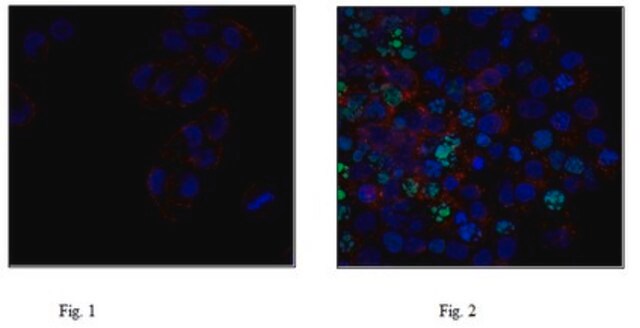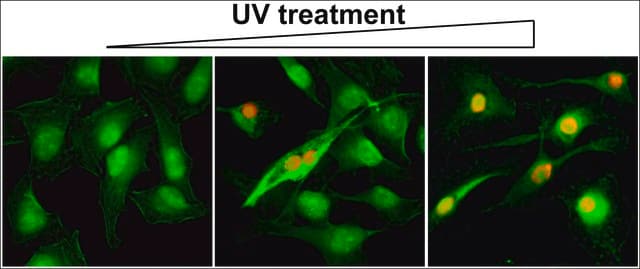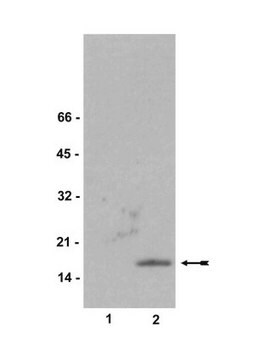05-636-AF647
Anti-phospho Histone H2A.X (Ser139) Antibody, clone JBW301, Alexa Fluor™ 647
clone JBW301, 0.5 mg/mL, from mouse
Synonym(s):
Histone H2AX, H2a/x, Histone H2A.X
About This Item
Recommended Products
biological source
mouse
Quality Level
conjugate
ALEXA FLUOR™ 647
antibody form
purified antibody
antibody product type
primary antibodies
clone
JBW301, monoclonal
species reactivity
human
species reactivity (predicted by homology)
vertebrates (based on 100% sequence homology)
concentration
0.5 mg/mL
technique(s)
immunocytochemistry: suitable
isotype
IgG1
NCBI accession no.
UniProt accession no.
shipped in
wet ice
target post-translational modification
phosphorylation (pSer139)
Gene Information
human ... H2AX(3014)
General description
Immunogen
Application
Epigenetics & Nuclear Function
Histones
Quality
Immunocytochemistry Analysis: A 1:100 dilution of this antibody detected phospho Histone H2A.X (Ser139) in staurosporin treated HeLa cells.
Alexa Fluor™ is a registered trademark of Life Technologies.
Target description
Physical form
Storage and Stability
Legal Information
Disclaimer
Not finding the right product?
Try our Product Selector Tool.
Storage Class Code
12 - Non Combustible Liquids
WGK
WGK 2
Flash Point(F)
Not applicable
Flash Point(C)
Not applicable
Certificates of Analysis (COA)
Search for Certificates of Analysis (COA) by entering the products Lot/Batch Number. Lot and Batch Numbers can be found on a product’s label following the words ‘Lot’ or ‘Batch’.
Already Own This Product?
Find documentation for the products that you have recently purchased in the Document Library.
Our team of scientists has experience in all areas of research including Life Science, Material Science, Chemical Synthesis, Chromatography, Analytical and many others.
Contact Technical Service







